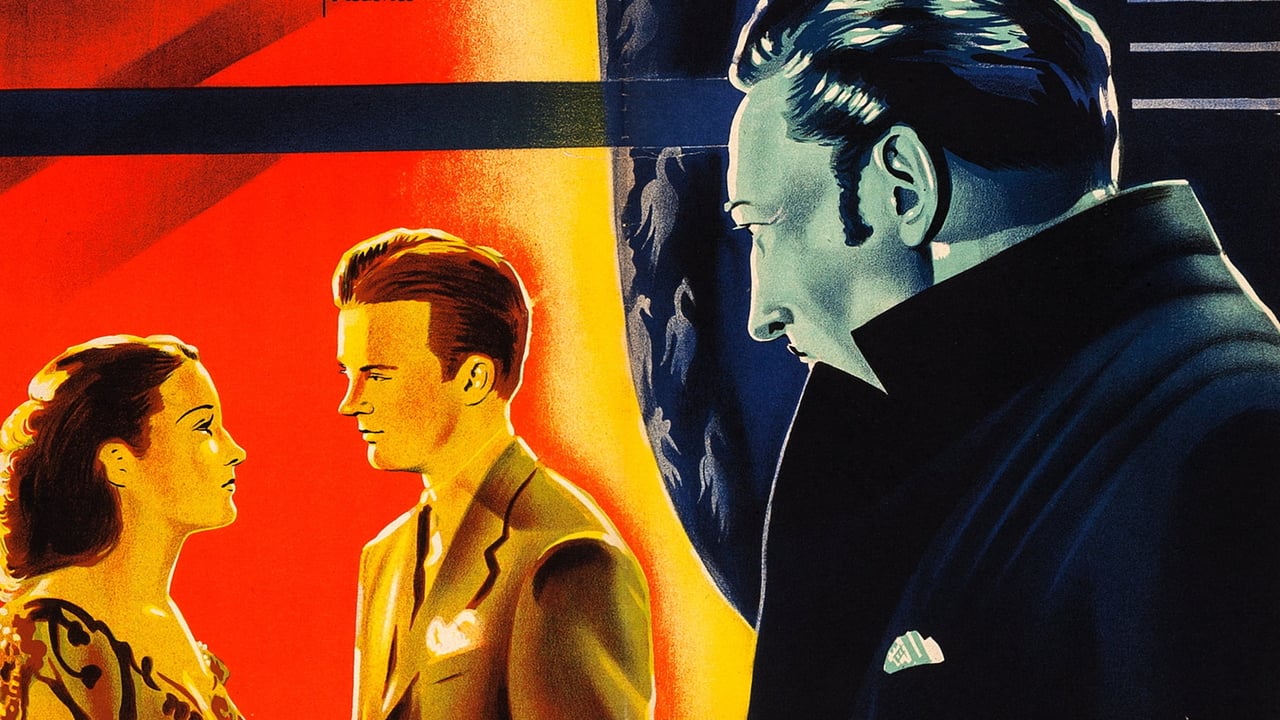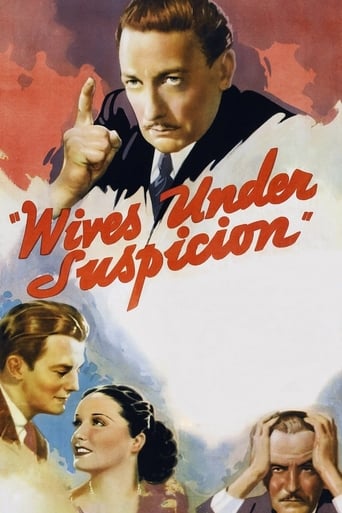Reptileenbu
Did you people see the same film I saw?
2freensel
I saw this movie before reading any reviews, and I thought it was very funny. I was very surprised to see the overwhelmingly negative reviews this film received from critics.
Billie Morin
This movie feels like it was made purely to piss off people who want good shows
Nayan Gough
A great movie, one of the best of this year. There was a bit of confusion at one point in the plot, but nothing serious.
Cristi_Ciopron
A stylish popular drama with W. William (as an attorney for the state) and Gail Patrick (as his wife), also some customary but unfunny comic relief provided by a black actress. M. Stone has a good supporting role, as a nervous young man, appropriately submissive to his chief, several scenes, from which one senses he was deserving more (though in his scenes with W. William he looks deferent and respectful enough, as required by his role); he's somewhat like a slimmer Wayne, or a much tougher Lemmon.After five yrs, Whale shot again a script, this one; the result is thrilling, but unsubtle dramatically, in that the attorney's shift resembles a sudden conversion (he becomes aware of jealousy and neglect, but this reshapes also his whole professional approach, as his cruelty and malevolence are distinct from his conjugal behavior, although likely kindred, related …). The movie has been carefully made, though it might of seemed somewhat more conventional than the director's other works. Although, given that he remade one of his earlier movies, he might of been fond of the script. Whale has been essentially a genre director, and this movie corresponds to the genre approach, being not a straight drama, but a genre movie, like one made by Sekely, and like countless others …; it follows that his courtroom story is a good show, unsatisfying dramatically: unsubtle, mediocre, but stylish.W. William has a now outdated hawkish handsomeness, appreciated in the older movie-making, reminding of Menjou (only, of course, meaner), but also of Rathbone. In a Universal show, he resembles also one of Hammer's future character actors. His acting being mono-chord, the shift comes across as less believable.Here, he plays a severe, heartless, cruel, sardonic attorney of the state; the idea of the script has been that one of his cases changes so much his thought, as to reshape completely his whole being, and perhaps this shift should of been more gradual, less instant in its effects, though it had been prepared enough by the attorney's exposure to the case. As the malevolent attorney (the Inquisitor, the executioner), he looked his role; and there's also his morbid toy, the abacus, and Whale's savvy directing. The turning, the shift in front of the court was less convincingly played. This shift is less believable, and not very well conveyed by the leading actor himself.I think Whale achieves much given the nature of the script, so that the storyline is polished and neat, the drama is simple but deepened, and MacAllen's case offers a striking reference, so that the style comes across as both popular and thoughtful. Some lines are beautiful, like that about the strange perversity of destructiveness.
som1950
Walter Huston famously said that he wasn't paid to sell good lines, but to put across bad ones. He often did. So did Warren William. For both of them, putting across bad lines frequently involved overacting. It's a bit difficult to believe WW being overcome by passion of any sort, and especially any aroused by his boring (though gracious) clothes-horse of a wife (Gail Patrick) in "Wives Under Suspicion," the tame and uninspired 1939 remake by James Whale of his more visually striking "Kiss Before the Mirror" made only five years earlier, but, presumably, too risqué to be rereleased after the Motion Picture Production Code began to be enforced.Frank Morgan switched roles from defense attorney in the first to defendant in this one, and, unfortunately, Gloria Stuart and Walter Pidgeon did not return. The story is mechanical and has coincidences that strain credulity, but Warren William gave it his all. The only interesting touch was the courtroom set with the judge raised to an exaggerated height.
howdymax
This is a truly original story. Granted, it was done in 1938, but I haven't seen anything quite like it since. That's unusual for Hollywood.
Warren Williams is an obsessed District Attorney who is incapable of any human feeling toward the people he prosecutes. And then a case comes along. A refined, educated, teacher kills his wife in a moment of mad jealousy. Warren has no mercy for him. Coaxes him into a confession with the ultimate goal of executing him.The gimmick in this story is that, during the trial, he realizes that he is living a parallel life. He has neglected his own wife and come to believe that she is having an affair. After following her to a friends house, he finds himself with a pistol in his hand - a perfect parallel to the case he is trying. It changes his life.Warren Williams has a tendency to overact, but to hear him bellow in the courtroom, and cackle with glee when he pulls one over on his adversaries, is not to be missed. There is one caution. Is it possible to be too sophisticated? All the other actors are unremarkable, with the exception of Lillian Yarbo who plays the maid. Her lines and expressions are priceless.If, like me, you long for the days when Hollywood took the time to actually write a coherent script. A time when dialogue really meant something. A time when you second guessed the story and paid attention to the actors - instead of the special effects, take time out for this one. If you can find it.
OldTree
Not a spectacular film, but it's always worthwhile to keep a close eye on Whale's works.Here we have district attorney Stowell, someone who is only satisfied when the criminals are duly punished. He has a special kind of an abacus with which he counts his successes: one skull for every murderer that he has sent to the electric chair. (Sharpy, his secretary, doesn't like it: „I wish you get rid of that hideous contraption. It gives me the willies.").Someday there is another case of murder. A workaholic has shot his neglected wife out of jealousy. Stowell must learn that his own situation is a parallel to the one of that man and finally he sees himself with a pistol in the hand ...Funny are the scenes with Creola, the maid. It's priceless how Lillian Yarbo delivers her lines.There's not much action in this film, but all the more dialogs.

